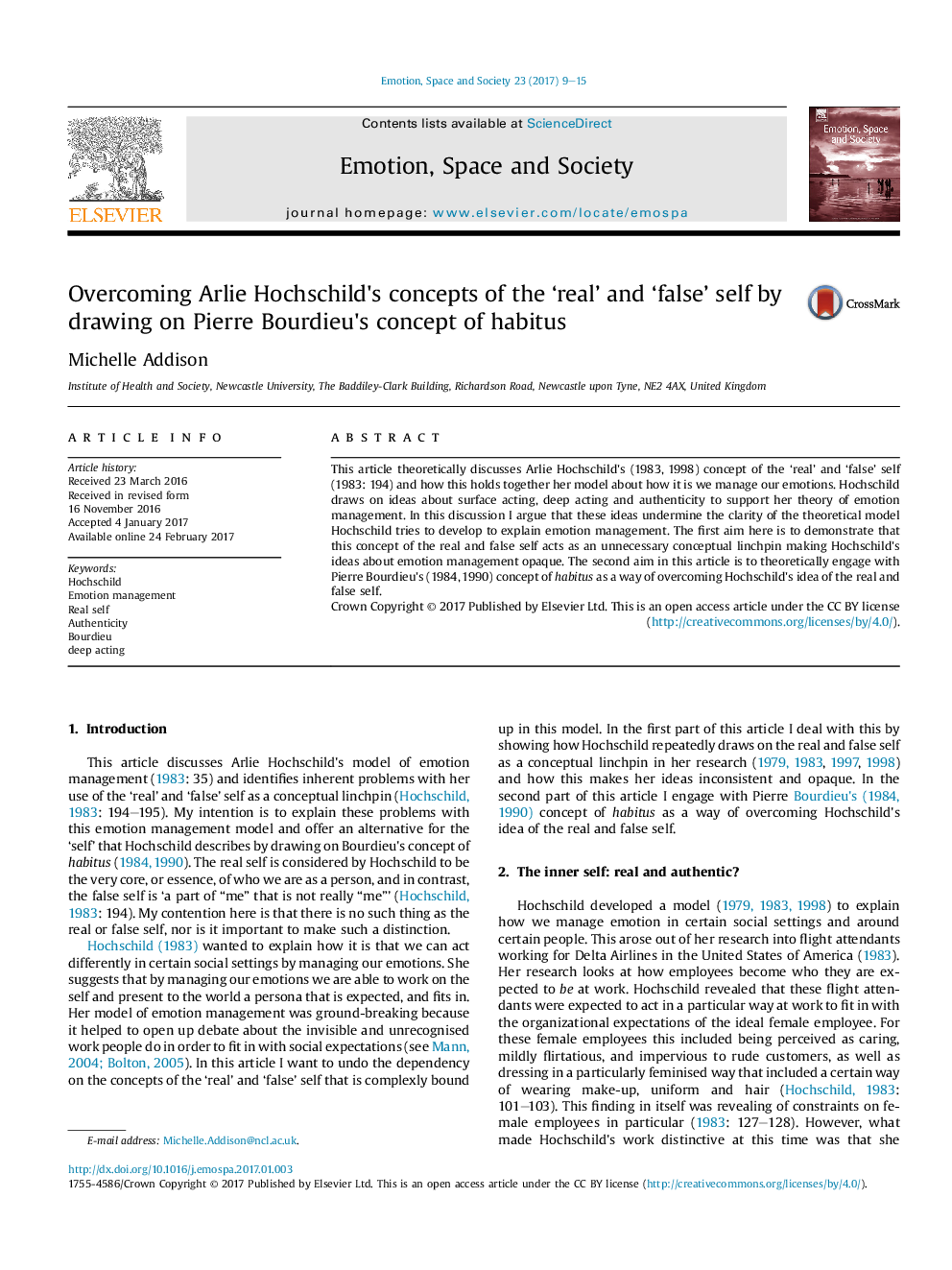| کد مقاله | کد نشریه | سال انتشار | مقاله انگلیسی | نسخه تمام متن |
|---|---|---|---|---|
| 5045494 | 1475624 | 2017 | 7 صفحه PDF | دانلود رایگان |

- A theoretical discussion of Hochschild's concept of the real and false self in her emotion management model.
- Argument suggests that the 'real self' leads to problems of an overly agentic and autonomous construction of the individual.
- Argues that Bourdieu's concept of habitus accounts for the social and personal aspects of the self.
- Suggests that emotion management is part of a person's habitus.
This article theoretically discusses Arlie Hochschild's (1983, 1998) concept of the 'real' and 'false' self (1983: 194) and how this holds together her model about how it is we manage our emotions. Hochschild draws on ideas about surface acting, deep acting and authenticity to support her theory of emotion management. In this discussion I argue that these ideas undermine the clarity of the theoretical model Hochschild tries to develop to explain emotion management. The first aim here is to demonstrate that this concept of the real and false self acts as an unnecessary conceptual linchpin making Hochschild's ideas about emotion management opaque. The second aim in this article is to theoretically engage with Pierre Bourdieu's (1984, 1990) concept of habitus as a way of overcoming Hochschild's idea of the real and false self.
Journal: Emotion, Space and Society - Volume 23, May 2017, Pages 9-15